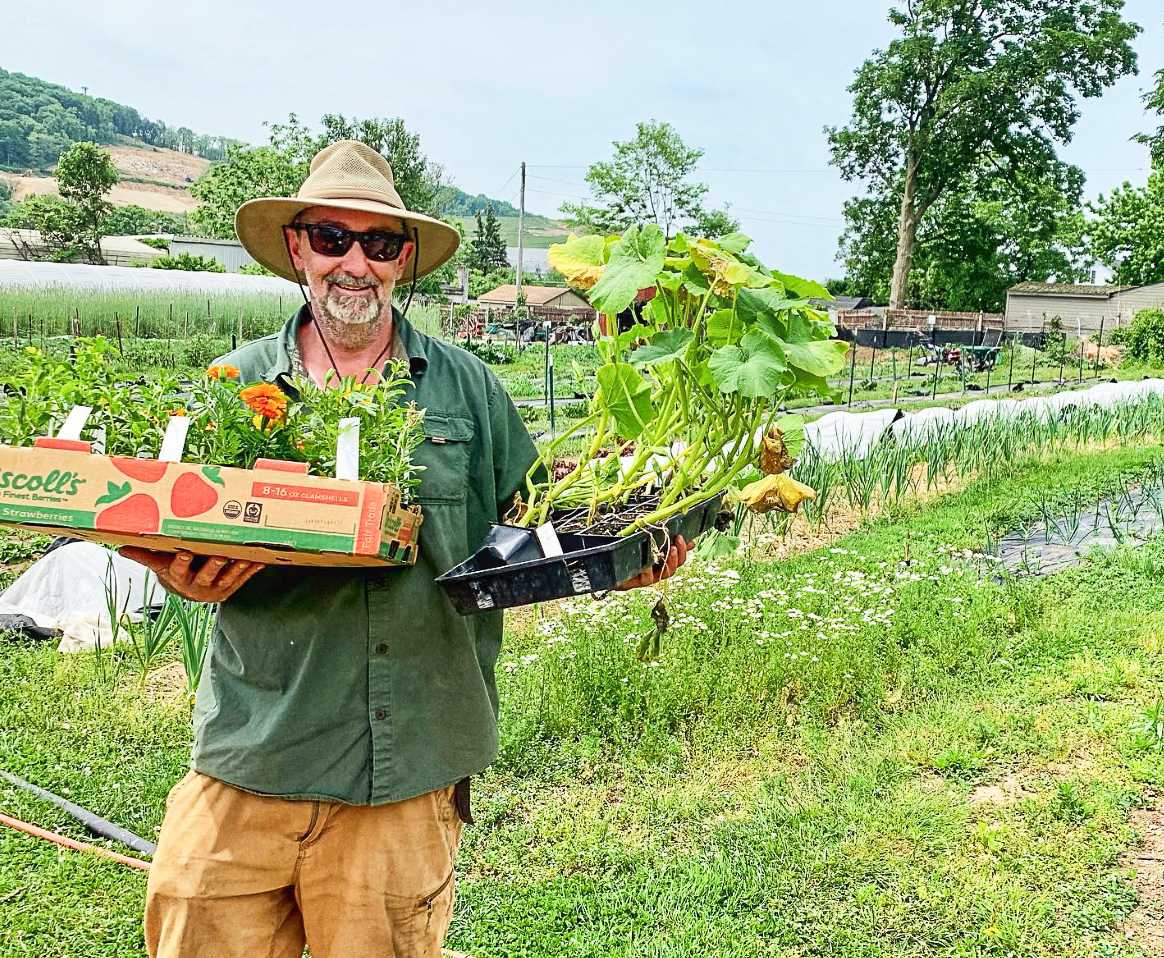Mark Reid does not just work at one garden – he works at them all.
When the position to lead Easton’s community gardens opened up, Reid saw an opportunity to use his gardening experience to serve Easton. After six years working at Easton’s Urban Farm, Mark Reid is uprooting himself to take the helm of them all.
“I’d love to … reach more areas of the city, to learn about what else is going on in the community gardens and to expand my knowledge into an organization that has a lot of tentacles around the city to help people with gardening,” Reid said.
The community gardens, run by the Greater Easton Development Program, allow residents to maintain a plot of land at one of seven locations throughout Easton. There are currently over 60 gardeners who use the gardens.
In Reid’s previous role as head of Easton Urban Farm, he helped grow local produce to distribute to the Easton community.
According to Reid, programs like Easton Urban Farm and community gardens play an important role in the neighborhood considering Easton’s status as a food desert, or an area with limited access to healthy, affordable food. The farm has donated over 12,000 pounds of produce to local initiatives.
The role of these organizations extends beyond offering plots — both also provide community gardening education.
The farm and gardens depend on volunteers to help facilitate their operations. Lafayette College’s student-operated MOSAIC Program has contributed through the Urban Garden Initiative, which works on the farm, and Easton Garden Works, which works in the Community Gardens.
“Typical tasks aren’t necessarily super flashy,” Sophia Kosednar ‘24, a volunteer at the Urban Garden Initiative, said. “It’s just whatever needs to be done that’s helpful for the program, even if it’s not planting vegetables, because that’s, in the full scale, a really small portion of what needs to happen at gardens to keep them running.”
Among Reid’s new garden priorities are expanding community outreach and planting culturally specific vegetables for the broader community.
“It’d be nice to reach out to the gardeners in the city and see what they want, see what their needs are, to help with education, a little bit more to bring the gardens to the people, so they can see that there is this vibrant gardening lifestyle in the city,” Reid said.
Reid also wants to attract more pollinators — a goal which has recently been aided by a donation of 500 pollinator-attracting plants from the Xerces Society for Invertebrate Conservation.
Although Reid only recently took the job at the gardens, the organization hasn’t missed a “beet.”
“We’ll still be interacting with Mark in basically the same capacity, just in a different place,” said Audrey Weisenberger ‘27, a volunteer at both the Urban Gardening Initiative and Easton Garden Works. “We’re really excited to see what [Reid] does. I think it’s going to be good and I am very much looking forward to continuing to work with him.”























































































































